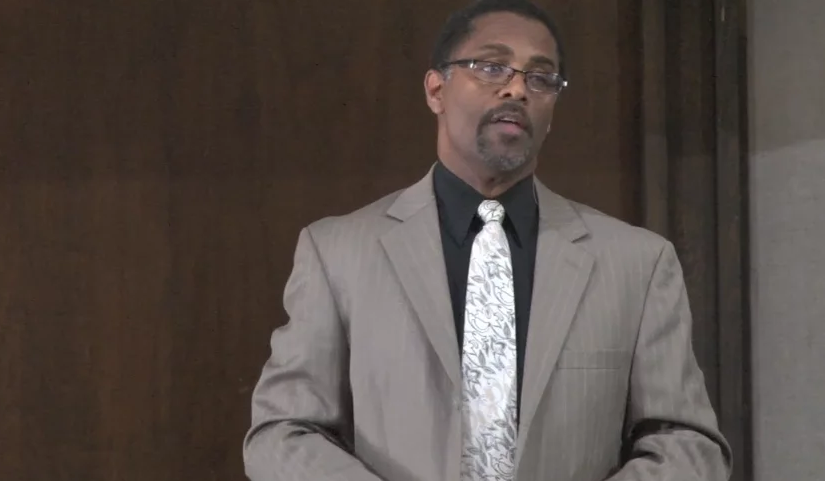On Sabbath we returned to the parable of the prodigal son to deal with the elder brother, and understand the rest of the story.
Rewind to Luke 15:25:32. The prodigal is back and his father has received him with peace. As far as the older brother is concerned, his father has shamed himself and the family again because he’s accepted a “sinner” and is eating with him. The “lawful” son was reflecting the attitude of the Pharisees! (See Luke 15:2). The first lesson we learn from this is: You might be a “lawful” son if you’re always calling for sinners to receive punishment rather than pardon.
“The older brother became angry and refused to go in. So his father went out and pleaded with him” (vs.28). Lesson #2: You might be a lawful son if grace makes you angry and you refuse to enter into it. Some people just don’t like grace. Legalists are joy killers and are suspicious if anyone is happy in church because they sure aren’t.
The lawful brother’s refusal to come inside the house is a breech of etiquette that is a personal insult to the guests and to the father as host. The son knows this and his action is an intentional public insult to his father. When we refuse to enter into grace out of jealousy or self-righteousness, we insult the Father! It is a slap in the face of God.
What will the father do? For the second time in the same day, the father “went out.” The message ought to be getting through to the Pharisees: God doesn’t wait for sinners to come in, He goes out to meet them where they are. That’s why the great commission is “go” not “wait for them to come.”
By rights and protocol, the son is to come in. But for this son, too—the one who stayed home, the “lawful” son—the father endures shame and demonstrates self-emptying love in order to reconcile.
Both sons needed the same thing—the grace of the Father. The prodigal’s lostness was smelly, disgusting, wasteful, and culturally offensive. The lawful boy’s lostness was dignified, well-dressed, disciplined, and culturally acceptable. But whether in jeans or a business suit, in open rebellion or hidden resentment, sin is sin. And you might be a lawful son if you believe you deserve heaven and others who aren’t like you deserve hell.
If the father is satisfied with a servant relationship with the boy, he could have him dragged in, tied up and punished. But he doesn’t want a servant, he wants a son. The father pays the same price he did with the younger son–he goes out.
“All these years I have served you,” the lawful son says. He responds like a servant, not a son, and begins demanding his rights. A servant obeys the law. A son responds out of love. His choice is law, and his concern is rewards.
The lawful son proves that you can “obey orders” and still not have a relationship with God—still not know him. If you cannot live in peace with your brothers you cannot live in harmony with the father. It is impossible. (See 1 John 4:20.)
“You are always with me,” the father says, “and everything I have is yours” (vs. 31). The boy was demanding something that was already his. He didn’t realize that as a son it was his privilege to live in a continuous state of freedom, authority, acceptance, honor, and celebration. His attitude shows how little he understands what it meant to be the son of the father. Do we understand what our privileges are?
The father said, “We had to celebrate and be glad.” Why? Because the lost was found. If we’re true sons and daughters of the Father, we, too, will care and sacrifice for the lost to be found.
Like the older brother, the Pharisees will ultimately reject this One who eats with sinners. They will refuse to “go in” with Christ. And Jesus will go out to a hill called Calvary and give His life for both law breakers and law keepers who break the Father’s heart. The kingdom of heaven is a party for sure. But the price of the party is the humiliation of the Father. A price He gladly paid.
The bottom line to all three stories is that you matter to God. Whether you’ve wandered away, gotten lost “in the house,” rebelled in the “far country,” or rejected the Father’s grace, the Father’s heart “goes out” to you, and in Christ He Himself “goes out” to redeem you. And because He does, you can join the party. It’s in your honor. —Pastor Randy
p.s. Help us “Win Renton” with your donation to our evangelism campaign. We need $10,000 to fund the mailings and support materials for our Creation and Prophecy seminars. Prayerfully consider what you can give and mark your gifts “Win Renton” on the tithe envelope or in on-line giving. Thank you for your support.





